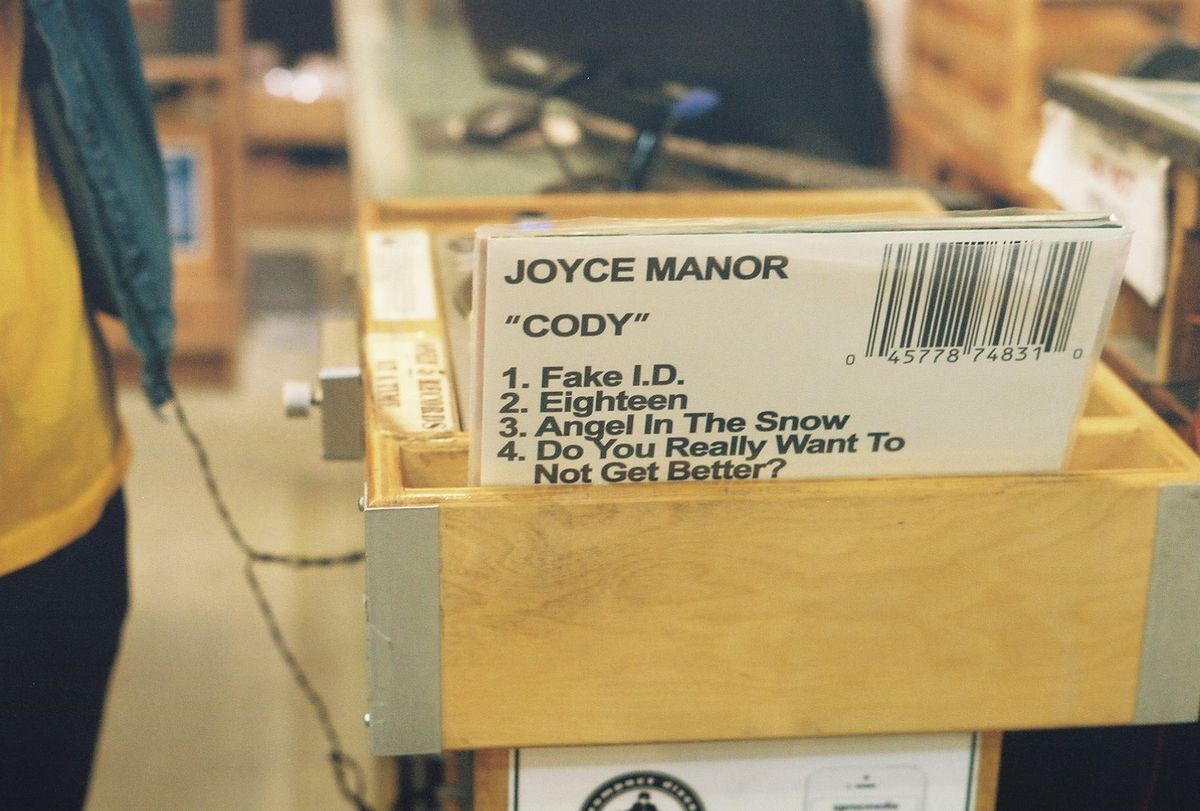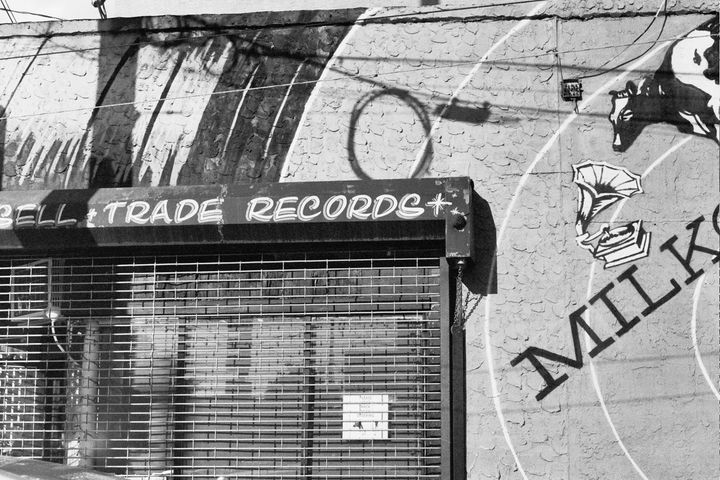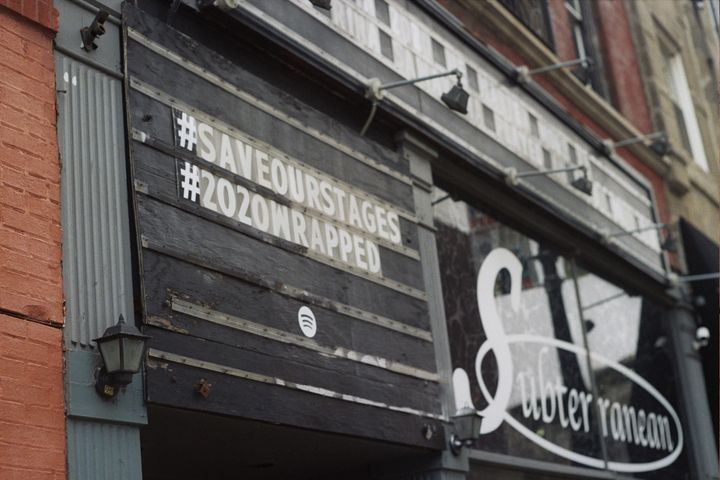financialization of music: technology, ownership, + american exceptionalism

This week the master recordings of Taylor Swift’s first six albums were sold by noted scummy fuck Scooter Braun. The acquisition and sale of catalogues isn’t unique to Taylor, of course, but she’s loud about 1. how much she hates Scooter Braun, which rules, and 2. how little power she has over her previously released art. She can attempt to buy it but she isn’t given any special privilege due to her writing and performance as the central element of the art. Scooter can sell to the best offer that serves him the best.
I saw someone refer to this as the financialization of music and the phrase has stuck in my head. When we talk about any major issue in music— Spotify and all its many issues, copyright infringement abuse, lack of arts funding, the impossibility of getting unemployment as an artist, the list goes on— what, at its core, we’re talking about is the long developing way financialization and commodification have permeated the way we’re trained to value and perceive art.
I want to talk about financialization of music through three main topics. First, the way the tech industry has used the American attitude toward art valuation and labor on the whole to gut musicians’ power. Next, the copyright infringement problem and how it intersects with capitalistic, regressive obsession with ownership. And third, the way American exceptionalism works directly against artists.
It’s important to note that taking advantage of musicians is at the core of the music industry. Whether that looks like record labels signing teenagers from low income families who do not, and cannot, know better or spotify not paying fairly or the implicit practice of signing over masters, it’s all to serve someone’s bottom line at the expense of artists who lack leverage. The music industry is built on taking advantage of Black artists, low income people, young people— all this talent without access to representation. Everybody with even a casual interest in music can tell you they think record labels take advantage of people.
I’ve always found it really interesting to look at the way people who aren’t engrained in music perceive the industry. People don’t know what masters are but they have this idea that it’s integral to ownership and control. People know “360 Deals” are bad. These are things that permeate. What I want to propose is that these perceptions do matter and overall cultural attitude, as well as the messaging from those in power about how we should feel, is important.
On Technocracy
People have this idea that in the age of technology the recording industry shouldn’t be necessary. Overwhelmingly, people I talk to think being able to post online democratizes the industry and takes power away from it. The idea that you don’t need a record label because artists can blow up without one by posting on SoundCloud or Youtube or TikTok permeates.
I find it difficult to buy into that fully. Sure, there’s success stories, but few of those success stories are without huge privilege behind them. That doesn’t make them undeserving of success, but to act as though technology is the savior of art for the common people, well, it’s a farce. It’s the lie of the American dream dressed up in new clothes. There’s power in finding ways to connect with people, but technology is not the driving force in why we do that and we should not give them credit for the drive of the people who use it.
Technology corporations want to sell themselves as arts corporations. Apple wants to push its design. Youtube wants to portray the company as synonymous with the content their users upload. Spotify wants to make you think they are music.
And it works! It works because overwhelmingly the American messaging is that arts are irrational and less worth your time than science and technology. American culture is based on equating making money and obtaining wealth with being intelligent and worthy.
In an essay about approaches to studying the value of arts and culture, cultural economist Erwin Dekker discusses first one of those approaches known as arts and commerce approach. Essentially this theory breaks down into the belief that markets will never create art of high quality and that autonomy of arts is necessary for arts to thrive. He goes on to explain the belief that art doesn’t coexist with the economic organization and planning of the 1950s very well and, according to economist John Kenneth Galbraith, Americans (artists included) have been conditioned to believe art is a “frivolous luxury” which should not take precedence over things which serve the “technostructure.”
People are conditioned to believe art isn’t of value and that being an artist is a privilege— an unstable privilege. You’re told in school that arts are a good way to make yourself look more appealing to universities, but if you want to pursue higher education in an arts sector, you’re laughed at. That’s not gonna make you any money. Arts are seen as a supplement to being an interesting person, not a vital part of the society and culture we live in. Meanwhile, tech companies that rely on art entirely to function are seen as implicitly innovative and successful.
The amount of money a tech company actually makes is irrelevant. How much it’s worth is even less grounded in reality. What matters, to art and to tech, is how much people with money and power believe it’s worth.
Labor, on the whole, is devalued through the onset of overwhelming technocracy and all the marketing that comes with it. Tech companies want to be free of the perception that they’re stuffy and boring while still perpetuating the idea that science and tech are the rational careers. Learn to code and all that.
On American Exceptionalism
Dekker presents a sort of alternative view of the “why” from a Hungarian economist who places the blame for low perception of value on people passively accepting what arts producers want to put out. He sees stripping those producers of their power as a way to create more individual taste in consumers and, as a result, create higher perceived value in art. The way to do that?
Government funding.
While these ideas within arts and commerce are different, I personally don’t see them as opposing. In fact, I see the root of the failure of the American music industry represented in entirety within the two ideas.
People are so constantly pushed industry approved, often nepotistic, artists who will serve their pockets well. The United States refuses to offer legitimate, widespread government funding for arts. America believes in the almighty power of The Market more than anything so, even in smaller independent music, we get most of our music from those who can pay.
Afford promotion. Afford to lose money on tours. Afford to go to music schools in Los Angeles where you can meet the children of members of Aerosmith (or, you know, another very famous band). Afford to pour all your time into your art.
I bristle against blaming music consumers for the way they react to this messaging and marketing. People love music and they want to experience it but knowing where to start can be hard. Having to weed through all the new music isn’t easy or usually fun, especially when your social and professional life isn’t engrained in it. The problem is not individuals. The problem is that we’re being lied to about 1. the true democratizing effect technology and the internet has on music and 2. the idea that art is based on merit.
We love the “singer got discovered playing tiny shows and swept into success” stories because we want them to be true. We want to believe if someone is talented enough and tries hard enough they can be massive. Successful artists want that to be true, too. Most don’t want to accept that they didn’t do it all on their own merit. We want to believe it’s all merit based because we live in America and it’s supposed to be this home of western media.
American culture loves to center itself as the premier hub of, well, everything. That includes art. Certainly there is huge media and art hubs here but there’s massive problems with seeing your country as the baseline. The glaring one is obvious racism and ignorance of other cultures, but I think it’s bad for American music and art too.
Funding and support for the arts is only beaten down further by the idea that America is the land of opportunity and the baseline for culture. There is no value there. The American government doesn’t value people who make art because it’s just the backdrop of one financial sector. When you essentialize art down to how much money it makes certain people, that’s what you get.
It’s like those ads about the ballerina retraining to code or whatever that were running a couple months ago in the UK. Someone had to art direct that, you had to hire creative people to make the ad. That’s kind of how I feel about the US government attitude toward art.
We are inundated with American art and media everyday and we know American cities are genuinely massive creative hubs so people in power don’t see a need to subsidize its creation or assist the people making it. People in creative industries don’t have access to healthcare, are making less at fewer jobs options everyday, can’t afford to live in the places that used to be centers of culture and creativity, and it’s only getting worse.
Where that whole disinterest in culture on a large scale, government way becomes an interesting sticking point for me is that, in the midst of the large scale breakdown of the avenues artists have to make money over the last 25 years, the legal system has decided it badly wants to “protect art.”
On Copyright Infringement + The Lie of Ownership
Like I said earlier, the music industry was designed to take advantage of artists and that’s why the people who are making the money aren’t the artists. The people suing for copyright infringement, similarly, are not only the artists responsible for the work. Usually it’s people who have a financial interest in the continued exploitation of the work. People like the children of famous musicians who have died, labels who retain ownership of masters, people who have obtained ownership, etc.
The current limit on copyright ownership is 70 years after death of the last writer. So, for example, Marvin Gaye’s children who sued Robin Thicke and Pharrell will be able to exploit his catalogue until 2054, in theory. After that his music will enter the public domain. For works made for hire, like say Disney animated characters created after January 1, 1978, it’s 95 years from publication or 120 years from creation whichever is shorter.
That’s changed and I’m certain we will see another overhaul of copyright when corporations start losing ownership over sound recordings and Disney starts to face its characters in the public domain again (Steamboat Willy Mickey Mouse 2024 baby!)
Music is different than most things, though, and there are no sound recordings in the public domain. In 2018, The Music Modernization Act was passed which did a few things but Title II is what we’re concerned with here. It standardized the copyright protection for sound recordings made before 1972. What that means is that stuff that absolutely should be in the public domain (or should be very soon!) has gotten new life because the recording industry has massive vested interest in the continued exploitation of music made almost a hundred years ago.
There’s this mindset the American government and judicial system have of “protecting” someone’s exclusive ability to exploit works. Not THEIR works, necessarily. But works they own.
The idea that the children of Marvin Gaye should be able not only to exploit their fathers music, but sue on grounds that another song kinda feels like one they make their money on and win is ludicrous. But I’m certain the companies that own Irving Berlin’s estate would rather die than lose their exclusive right to his music. I’m sure Scooter Braun and the company that now owns Taylor Swift’s music would feel the same.
Ownership is a lie that’s constantly looming over music. The Blurred Lines case is one example of how the US government backs asset protection over true similarity. Music is given most value when it 1. has been around to be deemed “classic” and 2. rakes in cash. All that does is push people to view catalogues and art as investment properties.
We are financializing art to the point of abstraction. It says to me that we’re valuing people profiting off the past over incentivizing creativity. It scares me that the government can, and I think will, be bought into reforming rules until the past can forever be profited off of by people with zero real involvement in the creation of the art they “own.”
It scares me that our government is run by geriatrics with zero idea or interest in equitable, supportive arts policy for working musicians today. The Music Modernization Act is actually called the Orrin G. Hatch Music Modernization Act. Orrin Hatch was 84 years old in 2018.
It scares me that tech companies will be allowed to do whatever they want with music because they work directly with labels and people in power.
It scares me that even people who know Spotify sucks will still worship Bandcamp. Reliance on tech companies is not and will never be a way forward.
It scares me that the only way we’ve seen change in any kind of legislation is through lobbying, but it’s encouraging to see musicians making a real push for unionizion. It’s encouraging to see musician run, collective purpose labels. If there’s anything I can hope for in the wake of covid destruction of the music industry it’s that collective action really takes hold.
Also that Scooter Braun gets his legs broken.
Miranda Reinert is a zine maker and law student based in Philadelphia. She is looking for friends. Follow me on Twitter for more on music and other things like bait tweeting the music community and live tweeting The Sopranos: @mirandareinert. I also just opened up a paid tier of this newsletter which for $5 a month (or $40 a year! what a deal!) you’ll get free zines as I make them and one upon sign up! Wow! But as always, thanks for reading!



Comments ()